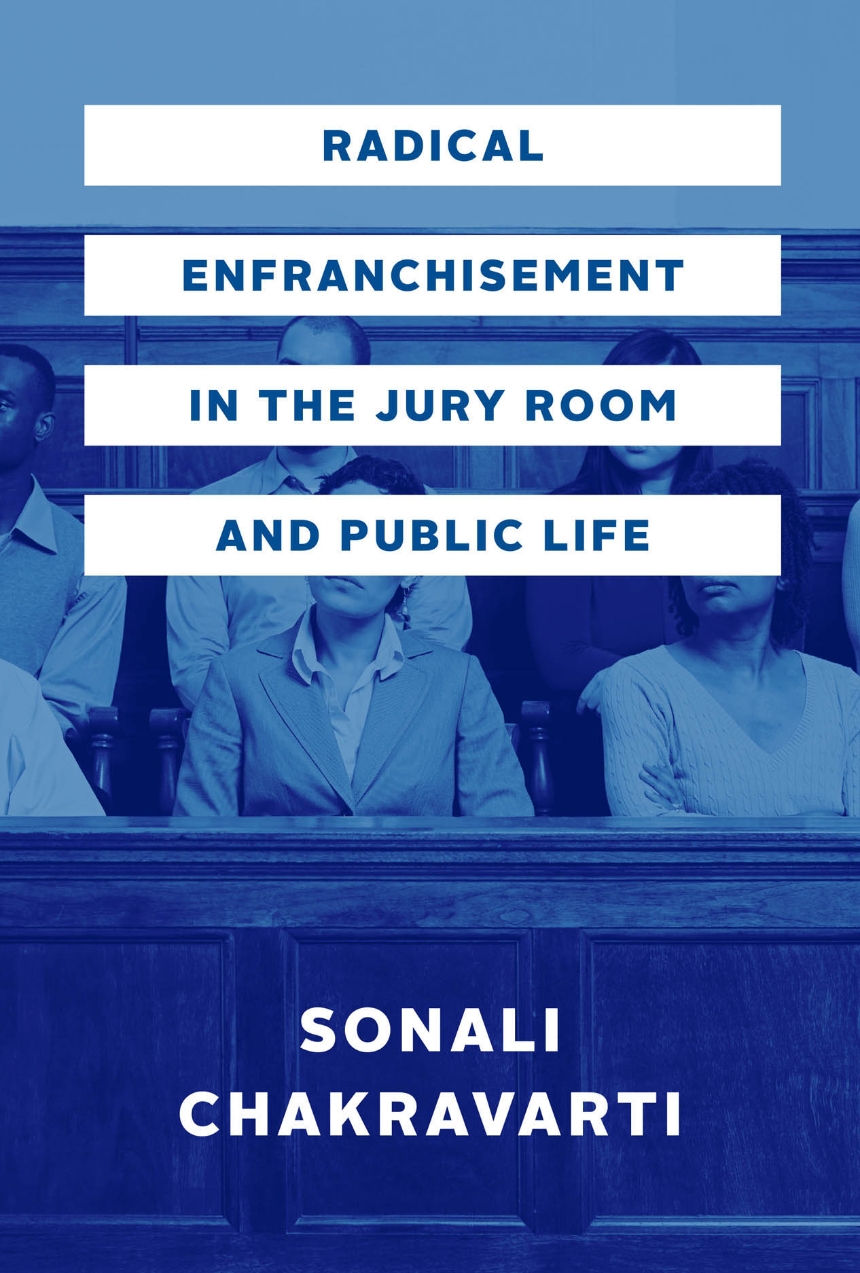Radical Enfranchisement in the Jury Room and Public Life
Juries have been at the center of some of the most emotionally charged moments of political life. At the same time, their capacity for legitimate decision making has been under scrutiny, because of events like the acquittal of George Zimmerman by a Florida jury for the shooting of Trayvon Martin and the decisions of several grand juries not to indict police officers for the killing of unarmed black men. Meanwhile, the overall use of juries has also declined in recent years, with most cases settled or resolved by plea bargain.
With Radical Enfranchisement in the Jury Room and Public Life, Sonali Chakravarti offers a full-throated defense of juries as a democratic institution. She argues that juries provide an important site for democratic action by citizens and that their use should be revived. The jury, Chakravarti argues, could be a forward-looking institution that nurtures the best democratic instincts of citizens, but this requires a change in civic education regarding the skills that should be cultivated in jurors before and through the process of a trial. Being a juror, perhaps counterintuitively, can guide citizens in how to be thoughtful rule-breakers by changing their relationship to their own perceptions and biases and by making options for collective action salient, but they must be better prepared and instructed along the way.
With Radical Enfranchisement in the Jury Room and Public Life, Sonali Chakravarti offers a full-throated defense of juries as a democratic institution. She argues that juries provide an important site for democratic action by citizens and that their use should be revived. The jury, Chakravarti argues, could be a forward-looking institution that nurtures the best democratic instincts of citizens, but this requires a change in civic education regarding the skills that should be cultivated in jurors before and through the process of a trial. Being a juror, perhaps counterintuitively, can guide citizens in how to be thoughtful rule-breakers by changing their relationship to their own perceptions and biases and by making options for collective action salient, but they must be better prepared and instructed along the way.
Reviews
Table of Contents
Acknowledgments
Introduction
Chapter One: Mature Enough to Disobey: Jurors, Women, and Radical Enfranchisement in Tocqueville’s Democracy in America
Chapter Two: Mistaken for Consensus: Hung Juries, the Allen Charge, and the End of Jury Deliberation
Chapter Three: No One but You: Jurors and the Internal Standard of Reasonable Doubt
Chapter Four: Guilty, Not Guilty, Nullify: Nullification in an Age of Abolition
Chapter Five: Radical Enfranchisement in the Jury Room
Notes
Bibliography
Index
Introduction
Chapter One: Mature Enough to Disobey: Jurors, Women, and Radical Enfranchisement in Tocqueville’s Democracy in America
Chapter Two: Mistaken for Consensus: Hung Juries, the Allen Charge, and the End of Jury Deliberation
Chapter Three: No One but You: Jurors and the Internal Standard of Reasonable Doubt
Chapter Four: Guilty, Not Guilty, Nullify: Nullification in an Age of Abolition
Chapter Five: Radical Enfranchisement in the Jury Room
Notes
Bibliography
Index
